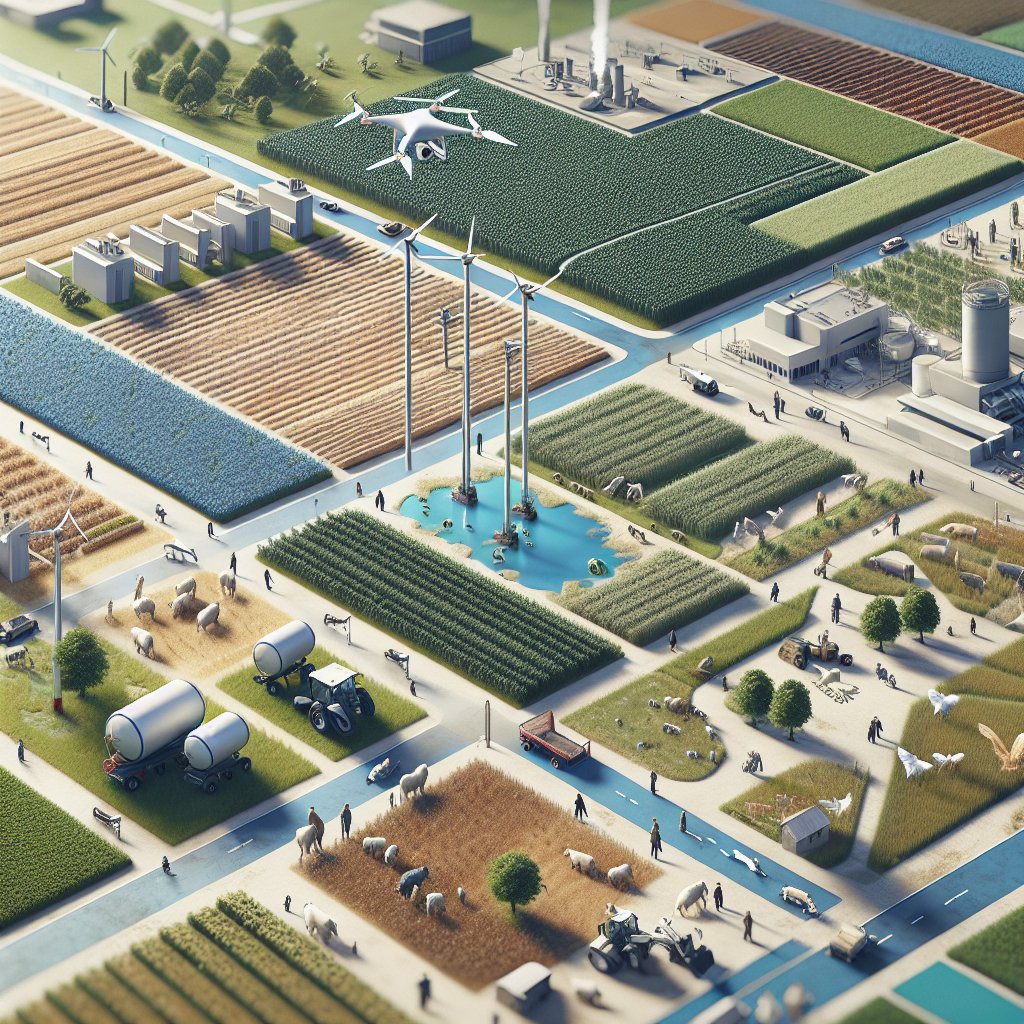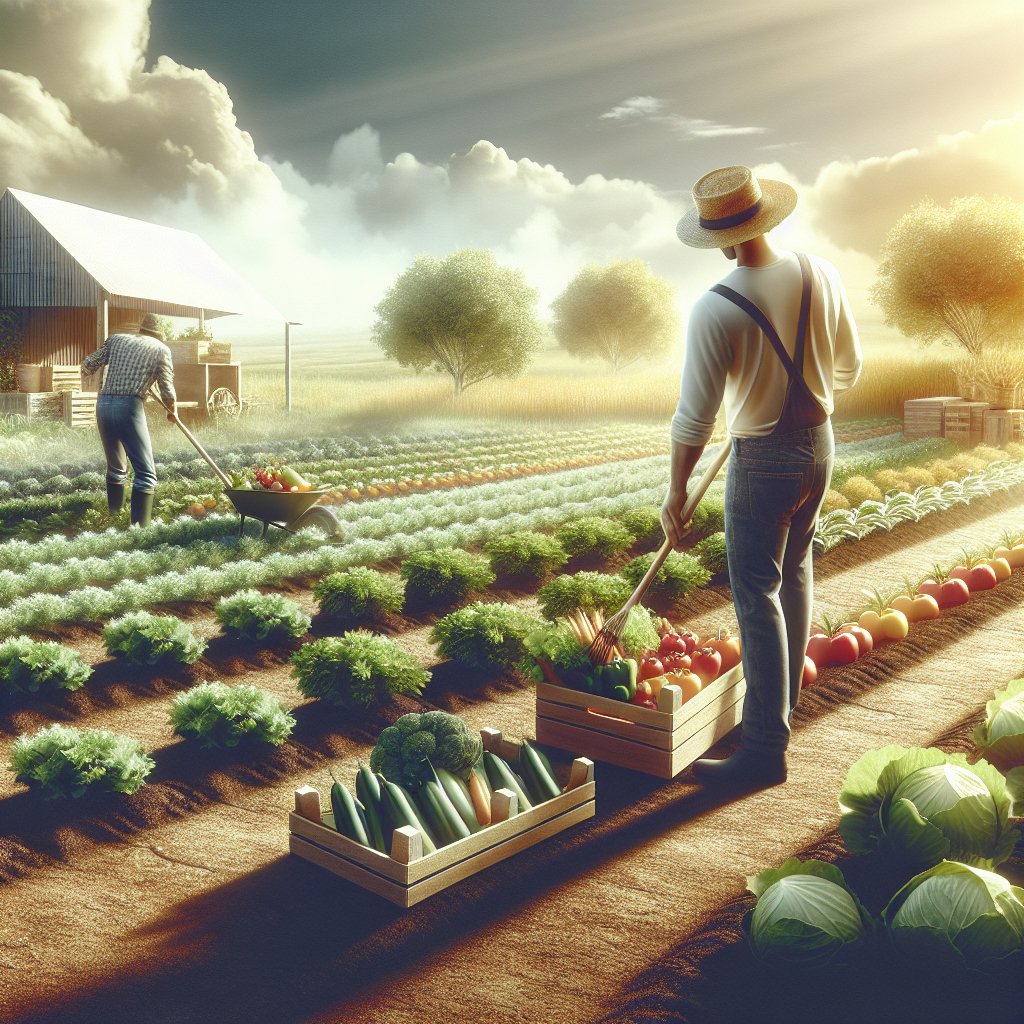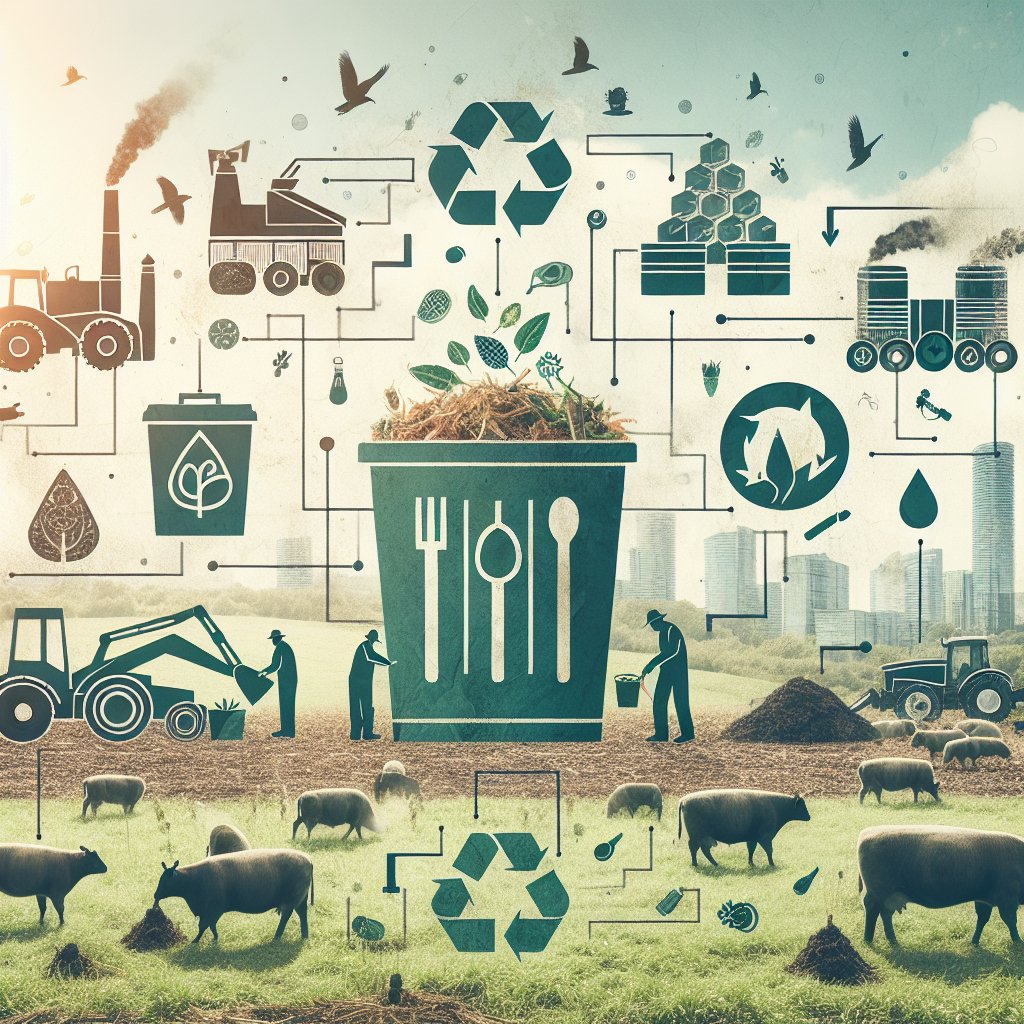Agriculture has always been a cornerstone of human civilization, providing the essential resources needed for survival and economic development. The role of government policies in agriculture is crucial, as these policies can significantly influence the productivity, sustainability, and economic viability of the agricultural sector. This article explores the various ways in which government policies impact agriculture, examining both the benefits and challenges associated with policy interventions.
Historical Context of Agricultural Policies
Throughout history, governments have played a pivotal role in shaping agricultural practices and outcomes. From ancient times, when rulers would allocate land and resources to farmers, to modern-day subsidies and trade agreements, the influence of government policies on agriculture has been profound. Understanding the historical context of these policies helps to appreciate their evolution and current significance.
In the early days of agriculture, policies were primarily focused on land distribution and the establishment of agricultural communities. As societies evolved, so did the complexity of agricultural policies. The Industrial Revolution brought about significant changes, with governments investing in infrastructure and technology to boost agricultural productivity. This period also saw the introduction of tariffs and trade policies aimed at protecting domestic agriculture from foreign competition.
In the 20th century, the focus of agricultural policies shifted towards addressing food security and rural development. Governments began implementing subsidies and support programs to stabilize prices and ensure a steady supply of food. These policies were particularly prominent in developed countries, where agricultural surpluses became a common issue. In contrast, developing nations often struggled with food shortages, prompting international aid and policy interventions to address these challenges.
Modern Agricultural Policies and Their Impact
Today, agricultural policies are more complex and multifaceted than ever before. They encompass a wide range of issues, including environmental sustainability, food safety, and international trade. The impact of these policies can be seen in various aspects of the agricultural sector, from production and distribution to consumption and waste management.
Subsidies and Support Programs
One of the most significant aspects of modern agricultural policies is the provision of subsidies and support programs. These initiatives are designed to stabilize farm incomes, encourage production, and ensure food security. However, they can also lead to market distortions and environmental degradation if not implemented carefully.
Subsidies can take various forms, including direct payments to farmers, price supports, and tax incentives. While these measures can provide much-needed financial assistance to farmers, they can also create dependencies and discourage innovation. Additionally, subsidies can lead to overproduction and the depletion of natural resources, as farmers may prioritize short-term gains over long-term sustainability.
Environmental Regulations and Sustainability
In recent years, there has been a growing emphasis on environmental sustainability in agricultural policies. Governments are increasingly implementing regulations aimed at reducing the environmental impact of farming practices, such as limiting the use of pesticides and fertilizers, promoting organic farming, and encouraging conservation efforts.
These policies are essential for ensuring the long-term viability of the agricultural sector, as they help to preserve natural resources and protect ecosystems. However, they can also pose challenges for farmers, who may face increased costs and regulatory burdens. Balancing the need for environmental protection with the economic realities of farming is a complex task that requires careful consideration and collaboration between policymakers and stakeholders.
Trade Policies and Globalization
Globalization has had a profound impact on agriculture, with international trade policies playing a crucial role in shaping the sector. Trade agreements and tariffs can influence the competitiveness of domestic agriculture, affecting both producers and consumers.
On one hand, trade policies can open up new markets for farmers, providing opportunities for growth and diversification. On the other hand, they can also expose domestic agriculture to increased competition from foreign producers, potentially leading to price volatility and market instability. Navigating the complexities of international trade requires strategic policy interventions that balance the interests of various stakeholders.
Challenges and Opportunities in Agricultural Policy
While government policies play a vital role in shaping the agricultural sector, they also present a range of challenges and opportunities. Policymakers must navigate a complex landscape of competing interests, balancing the needs of farmers, consumers, and the environment.
Balancing Economic and Environmental Goals
One of the primary challenges in agricultural policy is finding the right balance between economic and environmental goals. While economic growth and food security are essential, they must not come at the expense of environmental sustainability. Policymakers must develop strategies that promote sustainable agricultural practices while ensuring the economic viability of the sector.
Innovative approaches, such as precision agriculture and agroecology, offer promising solutions for achieving this balance. By leveraging technology and ecological principles, these practices can enhance productivity while minimizing environmental impact. However, widespread adoption requires supportive policies and investment in research and development.
Addressing Inequality and Access
Another significant challenge in agricultural policy is addressing inequality and ensuring access to resources and opportunities for all farmers. Smallholder farmers, particularly in developing countries, often face barriers to accessing markets, credit, and technology. Policies that promote inclusivity and support marginalized communities are essential for fostering a more equitable agricultural sector.
Programs that provide training, financial assistance, and infrastructure development can help level the playing field for smallholder farmers. Additionally, policies that promote gender equality and empower women in agriculture are crucial for achieving broader social and economic development goals.
The Future of Agricultural Policies
As the world faces increasing challenges related to climate change, population growth, and resource scarcity, the role of government policies in agriculture will become even more critical. Policymakers must be proactive in addressing these challenges, developing innovative solutions that ensure the sustainability and resilience of the agricultural sector.
Collaboration between governments, industry, and civil society will be essential for driving positive change. By working together, stakeholders can develop comprehensive policies that address the complex and interconnected issues facing agriculture today. The future of agricultural policies will depend on the ability to adapt and innovate, ensuring a sustainable and prosperous future for all.



